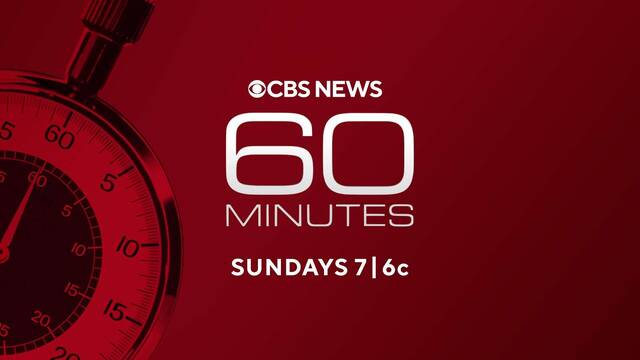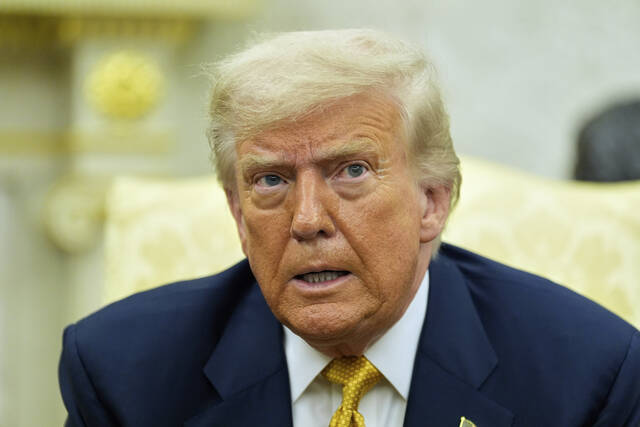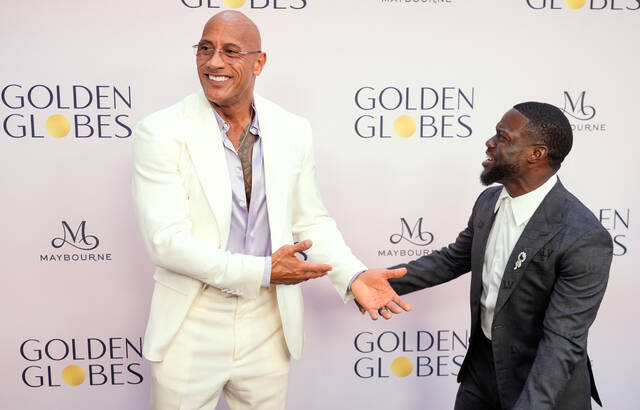As some media companies and personalities facing political or legal pressure from President Donald Trump are capitulating to his demands or censoring themselves, others are standing firm or lashing out defiantly against the administration, media observers say.
Some of the companies and personalities just don’t want the headaches. Others are creating them for the administration.
Examples are everywhere.
Local weather forecasters, perhaps looking to avoid controversy, declined to respond to questions about the potential impact of budget cuts at the National Weather Service and National Oceanic and Atmospheric Administration.
Disney, the parent company of ABC News, reached a $16 million settlement with Trump to end a lawsuit filed after ABC’s George Stephanopoulos mistakenly said that Trump had been found liable of rape, instead of sexual abuse, in the E. Jean Carroll civil case — even though some legal observers said Stephanopoulos’ March 2024 comment didn’t rise to the level of “actual malice” needed to win a defamation suit.
In a separate lawsuit, Trump accused CBS News of deceptively editing an October 2024 interview with then-Vice President Kamala Harris, the Democratic nominee for president, to portray her in a more favorable light.
Paramount’s legal team originally disputed the allegations, calling them “an affront to the First Amendment” and “without basis in law or fact,” but ultimately agreed to a $16 million settlement to resolve the matter.
Many First Amendment experts concluded that Paramount, the parent company of CBS, settled the case rather than continuing to challenge it to help complete its merger with Skydance Media — an $8 billion deal that needed approval from the Federal Communications Commission. The FCC OK’d the deal, which includes Pittsburgh’s KDKA-TV and WPKD, in a 2-1 vote Thursday.
In addition to the $16 million settlement, Paramount also announced before the FCC vote that it planned to cancel “The Late Show with Stephen Colbert” and end its diversity programs. Skydance execs also promised its future news and entertainment programming would embody “a diversity of viewpoints across the political spectrum” and appointed an ombudsman for at least two years “to evaluate any complaints of bias.”
Paramount described its move to cancel Colbert’s show as a “financial decision.” The show, often critical of Trump, will remain on the air for 10 months.
“Making the president happy so that the merger goes through is purely financial reasons,” said Robert Thompson, founding director of the Bleier Center for Television and Popular Culture at Syracuse University’s Newhouse School of Public Communications. “I think punches are being pulled. However, they’re being pulled in ways that are not consistently measurable or even predictable or even always intuitive.”
“In late night, they are trying really hard to demonstrate that they haven’t been cowed, but I’m sure in lots of other places, people are naturally pulling punches … out of fear of what Trump will do,” he said.
“The ‘60 Minutes’ payoff, that wasn’t so much pulling a punch, but that was certainly a compromise that had to do with journalistic integrity, and clearly that was done out of a fear, in this case, of the administration not allowing them to do something that they really, really, really want to do. By settling ‘60 Minutes’ and canceling Colbert, they thought that would be perceived as a sign of good faith,” he added.
FCC Commissioner Anna M. Gomez, appointed by former President Joe Biden, said after the merger vote that it was part of a broader “assault on the First Amendment.”
“In an unprecedented move, this once-independent FCC used its vast power to pressure Paramount to broker a private legal settlement and further erode press freedom,” Gomez said in a statement, adding that the FCC was “now imposing never-before-seen controls over newsroom decisions and editorial judgment, in direct violation of the First Amendment and the law.”
Gomez predicted the administration would not stop with Paramount.
“The Paramount payout and this reckless approval have emboldened those who believe the government can — and should — abuse its power to extract financial and ideological concessions, demand favored treatment, and secure positive media coverage. It is a dark chapter in a long and growing record of abuse that threatens press freedom in this country,” she said.
Not everyone is buckling to political or legal pressure.
A day before the FCC approved the Paramount-Skydance merger, Paramount-owned Comedy Central aired a typically profane episode of “South Park” that depicted Trump as Satan’s naked lover, mocked Paramount for settling the “60 Minutes” lawsuit, name-checked Colbert, depicted Jesus Christ fearing Trump’s reprisals and aired a PSA celebrating the strength of a naked, AI-generated Trump in the desert.
(Trump has said terms of the “60 Minutes” settlement include Skydance providing an additional $20 million for “advertising, PSAs or similar programming,” though Paramount denied that.)
Rupert Murdoch’s News Corp., which owns conservative Fox News Channel and the pro-business Wall Street Journal, offers a tale of two Trump coverage techniques.
The Wall Street Journal published a story July 17 about Trump allegedly creating a lewd illustration that was included in a book made for Jeffrey Epstein’s 50th birthday in 2003. Trump responded to the story by filing a $20 billion lawsuit.
Fox News Channel, on the other hand, ignored the story. Its audience is made up heavily of Trump supporters.
It’s a new, more volatile dynamic for a media industry accustomed to taking the First Amendment for granted. While those freedoms may be under assault, they’ve yet to be entirely torn asunder.
“Such violations endure only when institutions choose capitulation over courage,” Gomez, the FCC commissioner, wrote. “It is time for companies, journalists and citizens alike to stand up and speak out, because unchecked and unquestioned power has no rightful place in America.”











